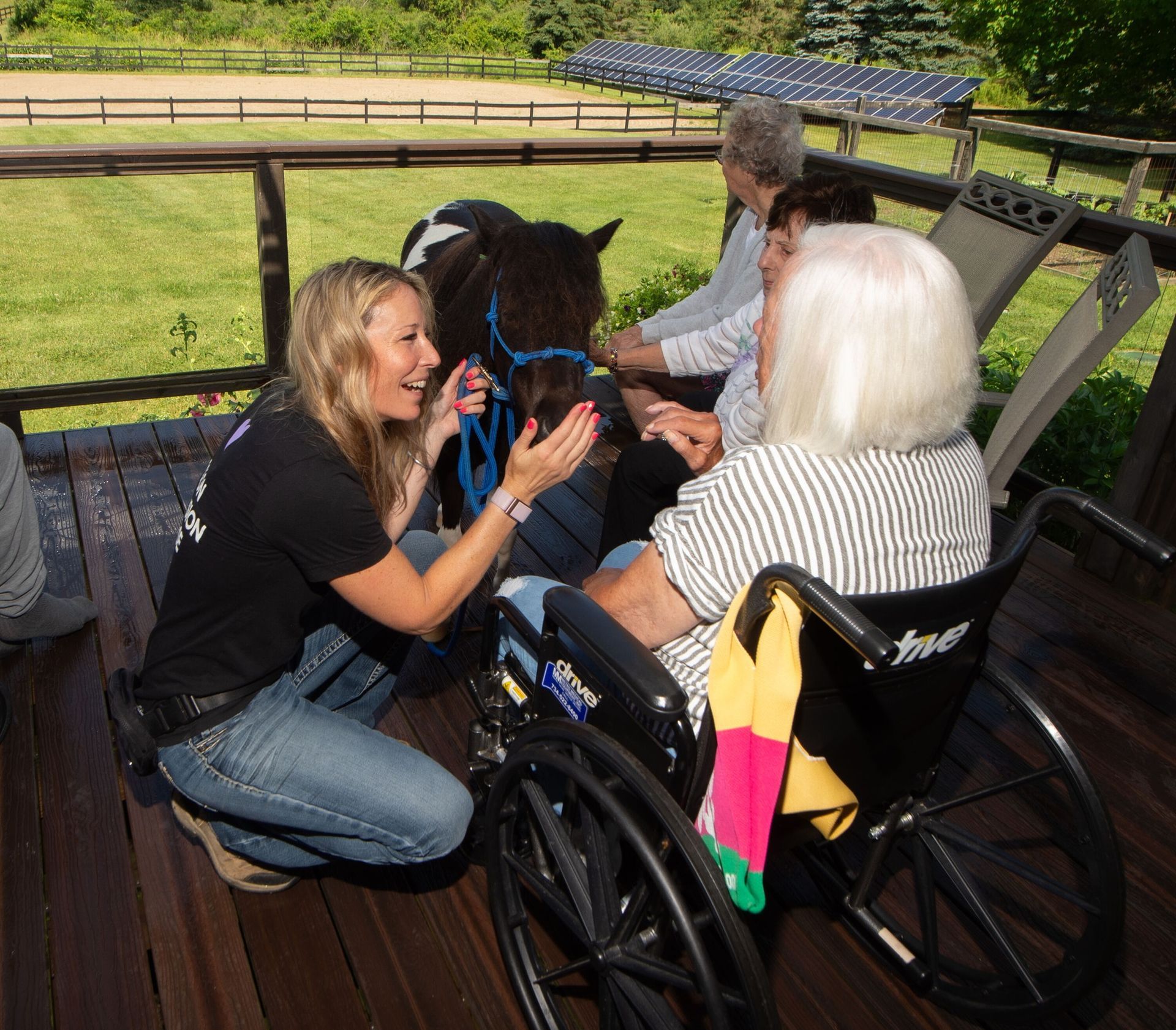Tips for Talking with Memory Loss Patients

At Tanglewood Assisted Living, we practice the five foot rule with memory loss patients. If you wish to be understood by a memory loss patient, you should be within five feet of that person when you speak to them. Most memory loss patients simply cannot process words that are shouted at them from across the room. In order to communicate effectively you should get close, make eye contact and begin by using the person’s first name.
If the patient is sitting down, you should not stand over them and talk down to them. When you stand up, you assume a dominate posture which makes people feel uncomfortable. Instead, kneel down so you are at the same eye level as the patient and you will immediately put them at ease.
Touch is important to memory loss patients. While you’re speaking, hold their hand or put your hand on their arm or shoulder. Be generous with hugs and handshakes.
At Tanglewood, the staff is trained repeatedly to maintain a calm and pleasant tone of voice. Memory loss patients have not lost their ability to appreciate tone of voice and if you become upset you will only make a bad situation worse. Some patients will be depressed or mad at the world. With these you should commiserate. Offer compassion, sympathy and condolences. Other patients may be mad at you. They may accuse you of all sorts of atrocities. With these folks you should simply apologize and say you’ll try to do better. You should never get mad. Always remain calm and pleasant.
If you do feel yourself becoming upset, walk away. Make sure the patient is safe and walk away. Come back in ten minutes and the patient’s attitude will have changed completely.
Ask only simple questions of a memory loss patient - questions which require a yes or no answer. Don’t ask “would you like lemonade or ice tea?” Even such mildly complex questions generate confusion. Ask only yes or no questions.
The best chance of having a coherent conversation with a middle or late stage memory loss patient is to talk about events that happened long ago. Such very old memories usually remain intact and the memory loss patient will feel comfortable talking about them. If possible, bring photographs from the patient’s younger days and talk about the people and places in the pictures.
Finally, musical memories also remain intact. A patient will remember and enjoy the lyrics and melodies of music they’ve heard throughout their lives and especially music they heard as a child. They will usually enjoy and sing along with hymns and pop music songs they heard in their youth.











